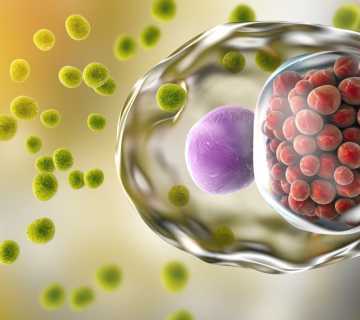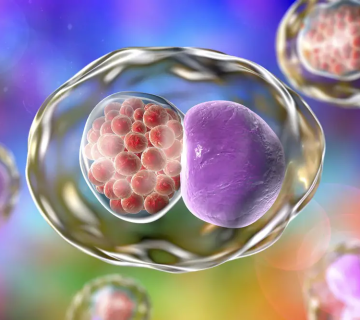Can Chlamydia Cause Infertility
Starting a family is a wonderful dream for many people, but sometimes health issues can make this journey more challenging. One common concern is whether chlamydia, a sexually transmitted infection, can lead to infertility. Understanding this connection is crucial for anyone trying to conceive. In this article, we’ll explore what chlamydia is, how it can affect fertility, its symptoms, treatment options, and ways to prevent it.
What is Chlamydia?
Chlamydia is a bacterial infection that is spread through sexual contact. It is one of the most common sexually transmitted infections (STIs) worldwide. The bacteria responsible for chlamydia is called Chlamydia trachomatis.
Symptoms of Chlamydia
Many people with chlamydia do not experience any symptoms, which is why it is often called a “silent” infection. When symptoms do occur, they may include:
- In Women:
- Unusual vaginal discharge
- Burning sensation during urination
- Pain during sex
- Lower abdominal pain
- In Men:
- Discharge from the penis
- Burning sensation during urination
- Pain or swelling in one or both testicles
If left untreated, chlamydia can lead to serious health problems, including infertility.
Can Chlamydia Cause Infertility? Understanding the Link Between Chlamydia and Fertility
Chlamydia is one of the most common sexually transmitted infections (STIs) worldwide. While many people who have it don’t experience any symptoms, the infection can still have serious consequences, especially when it comes to fertility. In this article, we’ll explore the relationship between chlamydia and infertility, answer common questions, and give you the information you need to protect your reproductive health.
What is Chlamydia?
Chlamydia is a bacterial infection that primarily affects the genital area but can also impact the eyes, throat, and rectum. It is spread through sexual contact, including vaginal, anal, and oral sex. Unfortunately, chlamydia often goes unnoticed because many people do not show symptoms. However, even without symptoms, the infection can still lead to complications, including infertility.
Can Chlamydia Cause Infertility?
Yes, chlamydia can affect fertility, and in some cases, it can make you infertile. If left untreated, chlamydia can cause permanent damage to the reproductive organs. This happens when the infection spreads to the fallopian tubes, causing pelvic inflammatory disease (PID), which can block or scar the tubes. This can make it difficult or impossible for eggs to meet sperm, preventing pregnancy.
Dr. Emily Stone, a reproductive health expert, explains: “Chlamydia is one of the leading causes of infertility in women. If untreated, it can cause scarring of the fallopian tubes, making pregnancy more difficult and, in severe cases, impossible.
How Does Chlamydia Lead to Infertility?
When chlamydia infects the reproductive organs, it can cause an inflammatory response. This inflammation can affect the uterus, fallopian tubes, and ovaries, potentially leading to scarring and blockages. These blockages prevent the sperm from reaching the egg or hinder the movement of the fertilized egg toward the uterus.
Key facts about how chlamydia impacts fertility:
- Pelvic Inflammatory Disease (PID): PID is a common complication of untreated chlamydia. It can cause long-term damage to the reproductive system and increase the risk of ectopic pregnancy (when the fertilized egg implants outside the uterus).
- Fallopian Tube Damage: The fallopian tubes are the pathways through which eggs travel from the ovaries to the uterus. Chlamydia infection can scar these tubes, making it difficult for sperm to reach the egg.
- Ovarian Damage: In rare cases, chlamydia can cause damage to the ovaries, affecting egg production.
Can Chlamydia Make You Sterile?
In severe cases, chlamydia can make you sterile, meaning you are no longer able to conceive naturally. However, this usually happens only after a prolonged infection that is not treated. Early diagnosis and treatment with antibiotics can often prevent this level of damage.
Dr. Julia Bennett, an infertility specialist, shares her insight: “Chlamydia can cause infertility if it is not detected and treated early. However, with prompt treatment, most women are able to recover fully, and their fertility is preserved.”
How Long Does It Take for Chlamydia to Cause Infertility?
The timeline for chlamydia to cause infertility varies depending on how long the infection goes untreated. For some women, fertility issues may develop within a few months, while for others, it may take years. Generally, the longer chlamydia goes untreated, the greater the risk of permanent damage to the reproductive system.
It’s important to get tested regularly, especially if you are sexually active and have multiple partners, so that you can catch infections like chlamydia early before they cause long-term damage.
Can Men Be Affected by Chlamydia Too?
Yes, men can also experience fertility issues due to chlamydia. While it’s less common than in women, chlamydia can lead to epididymitis (inflammation of the tubes that store sperm) in men, which can interfere with sperm production and quality.
Can Chlamydia Affect Pregnancy?
Even if you have had successful pregnancies in the past, a chlamydia infection can still affect future pregnancies. For example, untreated chlamydia can increase the risk of preterm birth, low birth weight, and neonatal infections. In some cases, it can also lead to complications during labor and delivery.
How Can You Protect Your Fertility from Chlamydia?
The best way to protect your fertility is to prevent chlamydia infection in the first place. Here are some tips:
- Practice Safe Sex: Use condoms during all types of sexual activity to reduce the risk of STIs, including chlamydia.
- Get Tested Regularly: If you’re sexually active, especially with multiple partners, it’s important to get tested for chlamydia and other STIs at least once a year.
- Early Treatment: If you are diagnosed with chlamydia, follow your doctor’s instructions and complete the full course of antibiotics to clear the infection and avoid complications.
- Talk to Your Doctor: If you’ve had chlamydia or any other STI, speak with your healthcare provider about your fertility and any concerns you may have.
Can You Still Have a Successful Pregnancy After Chlamydia?
Yes, many women who have had chlamydia can still have successful pregnancies, especially if the infection was treated early and did not cause significant damage to the reproductive organs. However, women who have had untreated chlamydia may face a higher risk of infertility or complications during pregnancy.
Dr. Nicole Adams, a fertility specialist, advises: “While chlamydia can impact fertility, the chances of a successful pregnancy after treatment are high, especially if the infection was caught early and managed properly.”
Conclusion: Is Chlamydia a Major Cause of Infertility?
Chlamydia can indeed cause infertility, particularly if it goes untreated for a long period. While the infection itself is often easy to treat with antibiotics, the damage it causes to the reproductive organs can be long-lasting and sometimes irreversible. If you suspect you might have chlamydia, or if you’re concerned about your fertility, it’s important to seek medical advice as soon as possible. Early detection and treatment are key to preserving fertility and avoiding complications down the road.
Remember, protecting your reproductive health is always a priority, and regular STI testing is one of the best ways to ensure that you stay on top of your health.
What is Infertility?
Infertility is defined as the inability to conceive a child after one year of regular, unprotected intercourse. It can affect both men and women and can result from various health issues.
Common Causes of Infertility
- In Women:
- Ovulation disorders
- Blocked fallopian tubes
- Endometriosis
- Age-related factors
- In Men:
- Low sperm count
- Poor sperm motility
- Abnormal sperm shape
- Blockages in the reproductive system
How Can Chlamydia Cause Infertility?
Chlamydia can significantly impact fertility in both men and women if not treated promptly. Here’s how:
In Women
Chlamydia can spread from the cervix to the upper reproductive organs, causing pelvic inflammatory disease (PID). PID can lead to:
- Scarring of the Fallopian Tubes: This can block the passage of sperm, preventing fertilization.
- Ectopic Pregnancy: A fertilized egg implants outside the uterus, usually in a fallopian tube, which can be life-threatening.
- Chronic Pelvic Pain: Persistent pain can affect overall reproductive health.
In Men
Chlamydia can infect the urethra and spread to the epididymis, leading to epididymitis. This can cause:
- Blockages in the Reproductive Tract: Preventing sperm from being ejaculated.
- Reduced Sperm Quality: Affecting the ability to fertilize an egg.
Dr. Emily Thompson, a reproductive endocrinologist, explains, “Chlamydia is a significant factor in infertility because it can cause permanent damage to the reproductive organs if not treated early. Regular screenings and prompt treatment are essential.”
Symptoms and Detection
Since chlamydia often presents no symptoms, regular testing is crucial, especially for sexually active individuals. Early detection can prevent complications like infertility.
Importance of Testing
- Women: Should get tested during their first prenatal visit and regularly if they have multiple partners.
- Men: Should get tested if they have symptoms or multiple sexual partners.
Diagnostic Methods
- Urine Tests: Simple and non-invasive.
- Swab Tests: Samples taken from the cervix in women or the urethra in men.
Treatment and Prevention
Chlamydia is easily treatable with antibiotics. Early treatment can prevent the infection from causing long-term damage.
Treatment Options
- Antibiotics: Commonly prescribed antibiotics include azithromycin or doxycycline.
- Partner Treatment: It’s essential that all sexual partners are treated to prevent reinfection.
Preventive Measures
- Safe Sex Practices: Using condoms reduces the risk of contracting chlamydia.
- Regular Screenings: Especially important for sexually active individuals with multiple partners.
- Open Communication: Discussing STI status with partners before engaging in sexual activity.
Dr. Sarah Williams, an obstetrician, emphasizes, “Preventing chlamydia is all about awareness and protection. Safe sex practices and regular testing are your best defenses against infertility caused by this infection.”
Health Management Tips
Managing your health effectively can reduce the risk of infertility caused by chlamydia and other factors.
For Women
- Regular Gynecological Exams: Routine check-ups can help detect and treat infections early.
- Healthy Lifestyle: Maintaining a balanced diet and regular exercise supports overall reproductive health.
- Stress Management: Reducing stress can improve hormonal balance and fertility.
For Men
- Maintain a Healthy Weight: Obesity can affect sperm quality.
- Avoid Toxins: Limit exposure to environmental toxins like pesticides and heavy metals.
- Stay Active: Regular exercise can improve sperm health and overall well-being.
Common Myths and Misconceptions
Myth 1: Chlamydia Only Affects Women
Fact: Chlamydia affects both men and women equally. It’s important for both partners to get tested and treated.
Myth 2: You Can Only Get Chlamydia Once
Fact: It’s possible to get chlamydia multiple times if exposed again. Prevention and safe sex practices are essential.
Myth 3: Antibiotics Make You Infertile
Fact: Antibiotics effectively treat chlamydia and prevent infertility when taken as prescribed. Delaying treatment can lead to infertility, not the antibiotics themselves.
Frequently Asked Questions
Can Chlamydia Be Prevented?
Yes, using condoms consistently and correctly during sexual activity can significantly reduce the risk of contracting chlamydia. Regular screenings and reducing the number of sexual partners also help in prevention.
How Long Does It Take to Recover from Chlamydia?
With proper antibiotic treatment, most people recover from chlamydia within one to two weeks. It’s important to complete the entire course of antibiotics even if symptoms disappear.
Can Chlamydia Be Asymptomatic?
Yes, many people with chlamydia do not show any symptoms. This is why regular testing is crucial for sexually active individuals.
What Should I Do If I Think I Have Chlamydia?
If you suspect you have chlamydia or have been exposed to it, contact your healthcare provider immediately for testing and treatment. Inform all sexual partners so they can also get tested and treated.
Does Chlamydia Affect Pregnancy?
Yes, untreated chlamydia during pregnancy can lead to complications such as preterm birth, low birth weight, and can be transmitted to the baby during delivery, potentially causing eye infections or pneumonia.
Expert Insights
Dr. Michael Lee, a urologist, states, “Chlamydia is a preventable and treatable infection. Awareness and proactive health measures are key to avoiding the serious consequences of infertility.”
Dr. Laura Martinez, a reproductive endocrinologist, adds, “Early detection and treatment of chlamydia can preserve fertility and prevent the long-term complications that can arise from untreated infections.”
Dr. Sarah Williams, an obstetrician, emphasizes, “For women planning to conceive, managing and preventing STIs like chlamydia is crucial. Regular check-ups and open communication with healthcare providers are essential steps in maintaining reproductive health.”
Conclusion
Chlamydia is a common but serious infection that can lead to infertility if not treated promptly. Understanding the symptoms, seeking regular testing, and practicing safe sex are vital steps in preventing and managing chlamydia. If you suspect you have chlamydia or are at risk, consult your healthcare provider immediately. Taking proactive measures ensures that you can pursue your dream of starting a family without unnecessary health obstacles.
Remember, knowledge and prevention are your best tools against infertility caused by chlamydia. Stay informed, stay protected, and seek medical advice when needed to maintain your reproductive health.



No comment